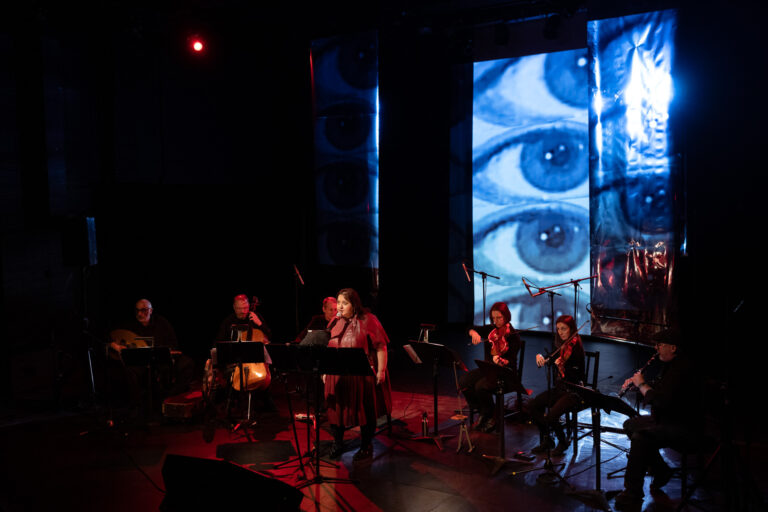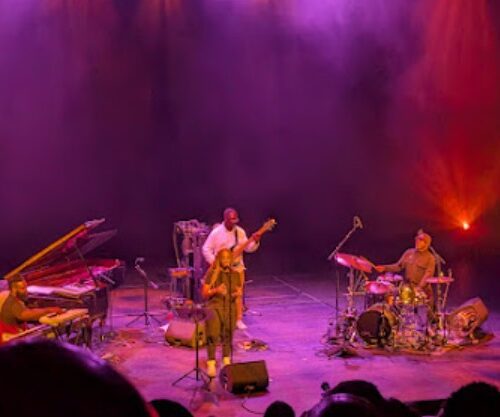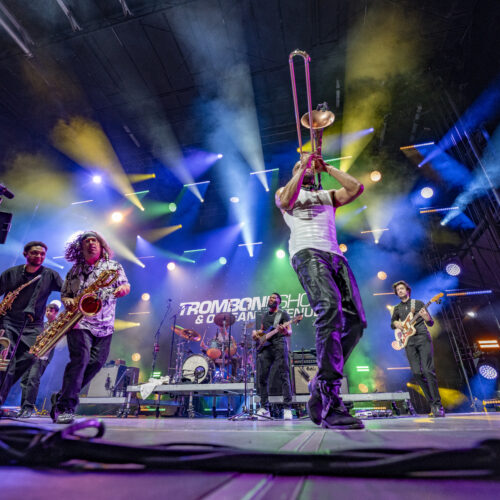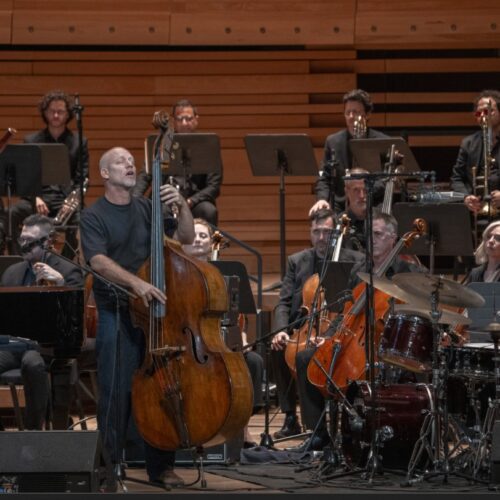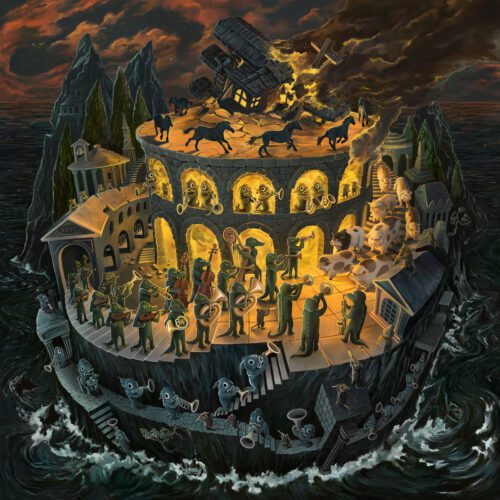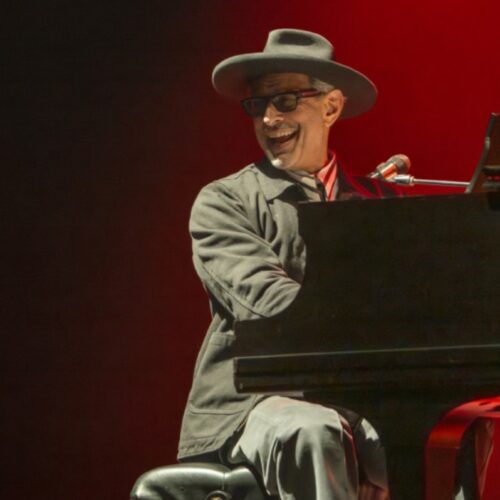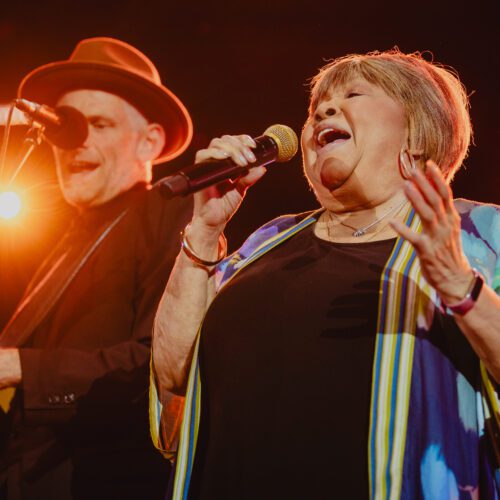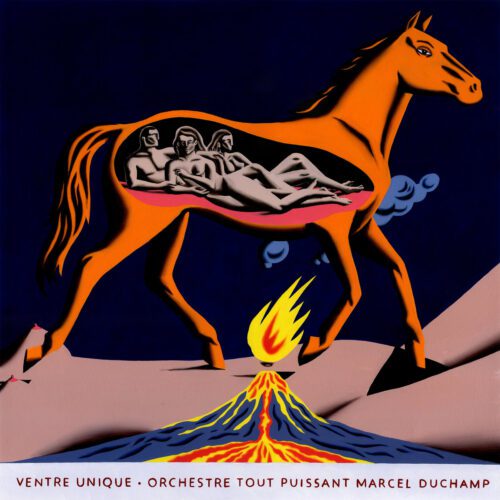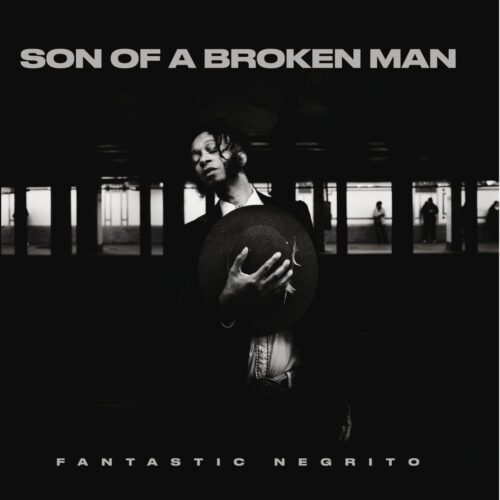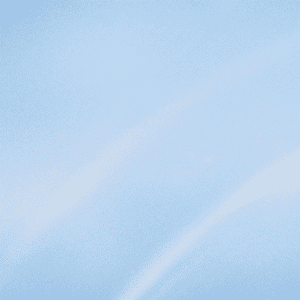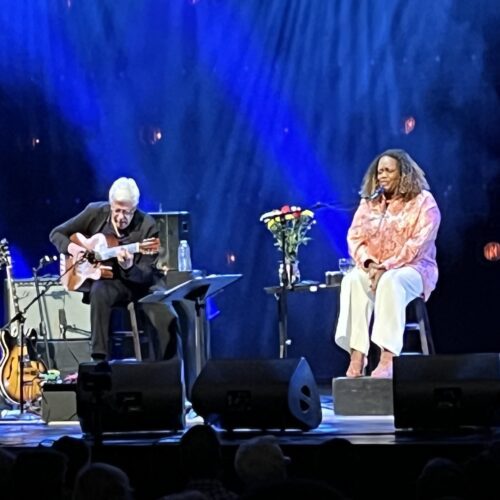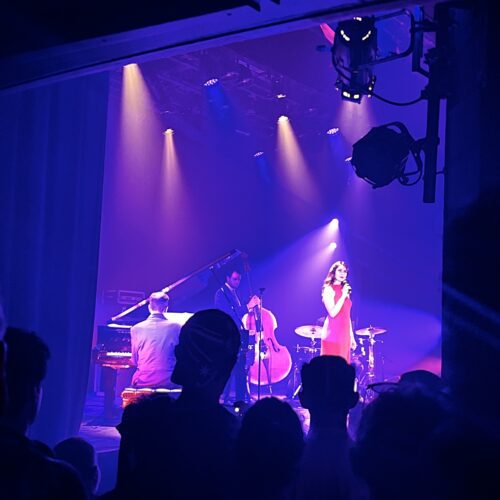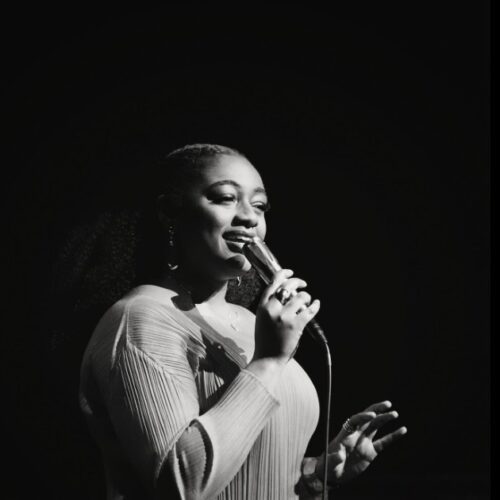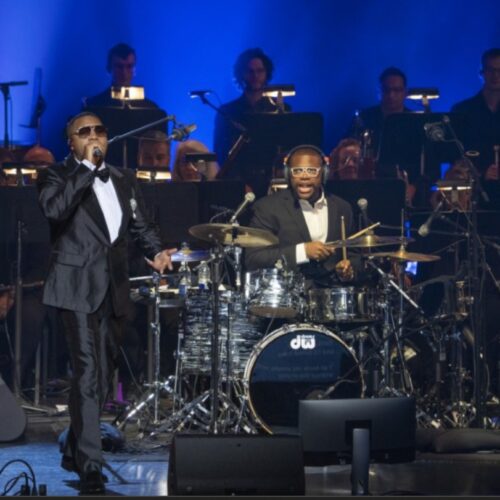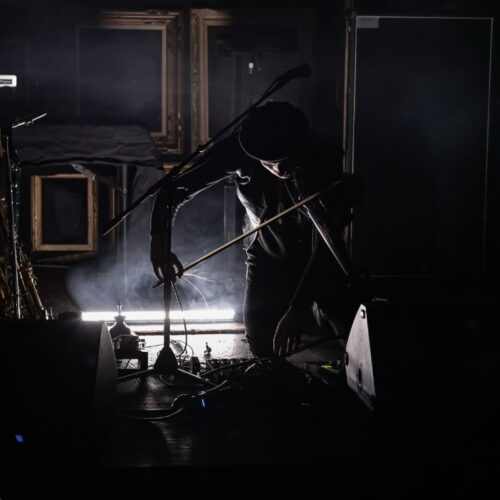One of the highlights of the Semaine du Neuf festival, organised by le Vivier in collaboration with Innovations in concert, was the musico-video-cinematic-theatrical adventure concocted by Montreal composer and instrumentalist Sam Shalabi and Ontario writer-actor Shaista Latif. For more details on this work, whose starting point is an old Afghan film partly projected on screen during the evening, listen to the interview I conducted with the main protagonists of the creation (it’s here!!).
This intriguing proposal came to fruition on Wednesday evening, 13 March, at La chapelle scènes contemporaines in front of a packed house. On stage, a string quartet plus Shalabi himself on oud and electric guitar, and Shaista Latif standing up, narrating her own text, superimposed on the film images and music.
Shalabi’s music has a fine modal classical feel, with appropriate but not overdone oriental hues. There are rare moments of more chromatic exploration, and sparse atonal touches, as in the section where Latif’s text refers to the attacks of 9/11 2001. Here, for the only time in the show, the guitar shrieks and unleashes a strident energy that is fully in keeping with the reprise of a speech by a certain American president by a Latif oozing sarcasm. On the screen, a young girl dreaming of modernity sees planes flying overhead. She is filled with pride, but the contrast is heartbreaking with the revenge-filled speech swollen with aggressive nationalism recited by Latif. Other planes will fly over the skies of Afghanistan many years after the film, but with far less noble results for the country. One patriotism follows another, but in the end the Afghans themselves are just spectators. A beautiful reversal of direction, and probably the most powerful moment of the show.
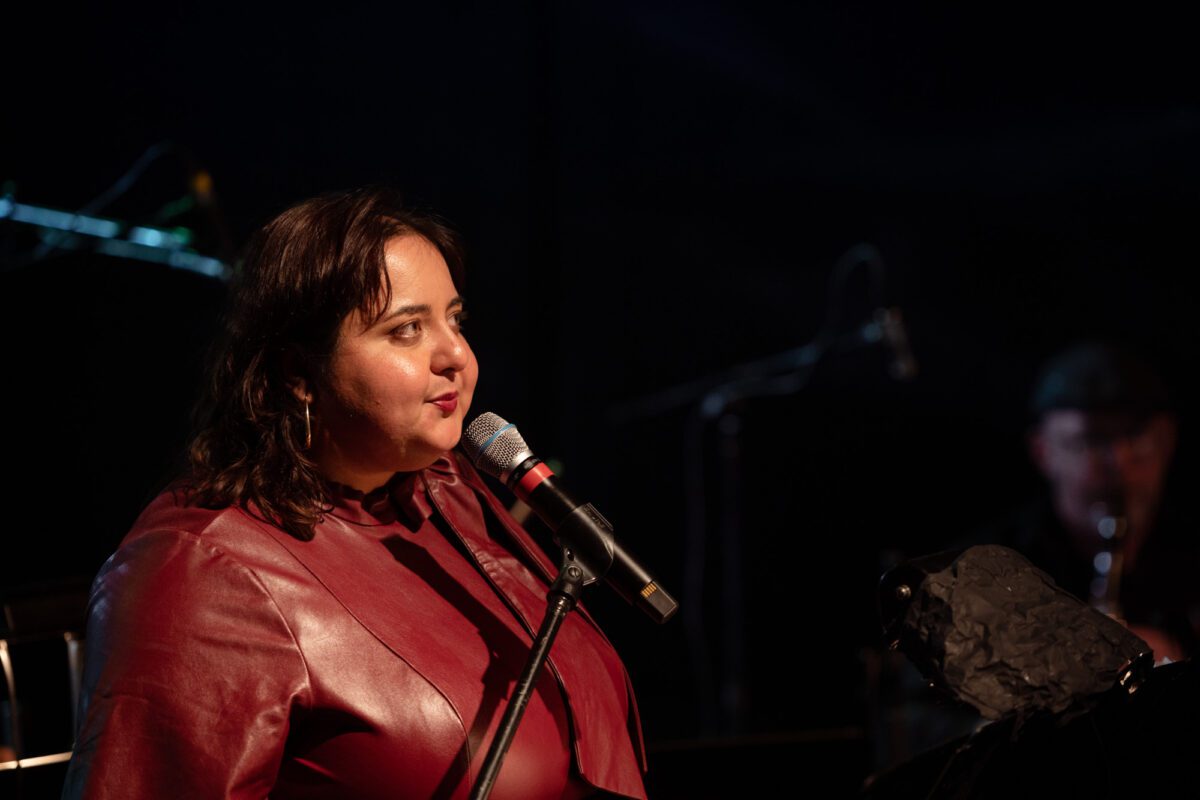
Cr.: Philippe Latour
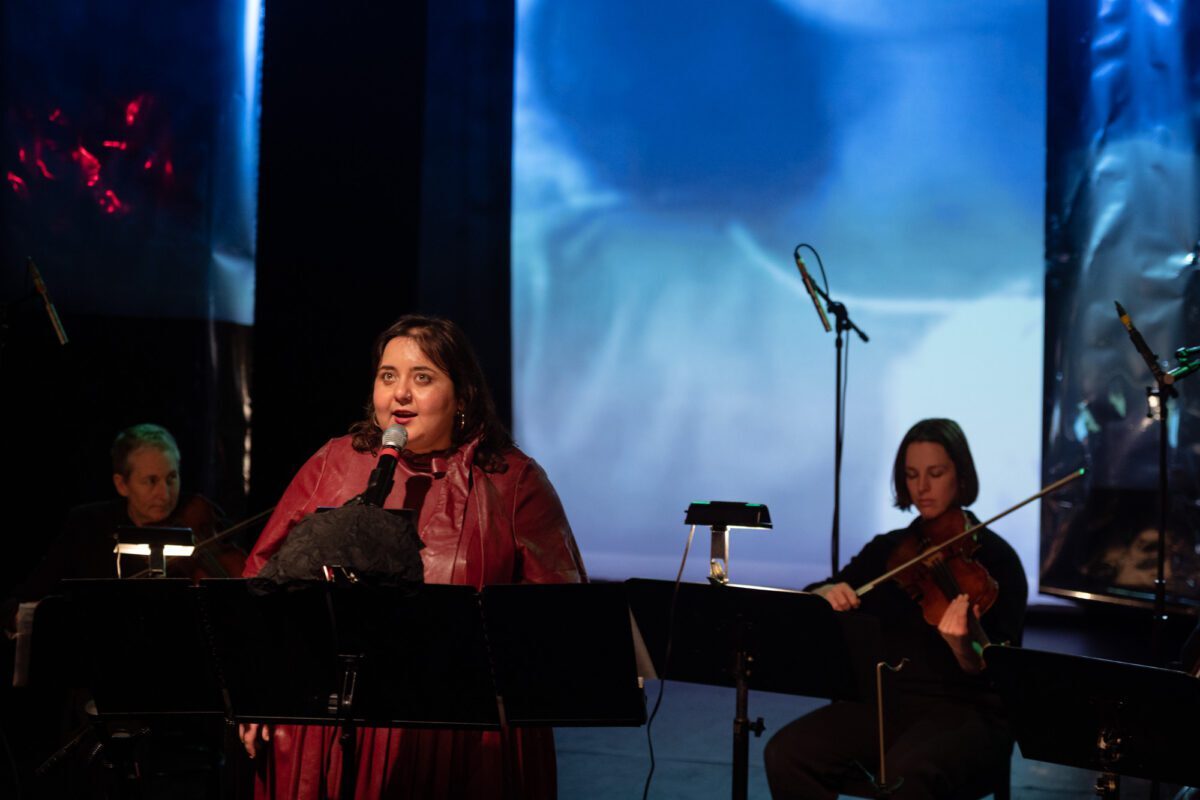
Cr.: Philippe Latour
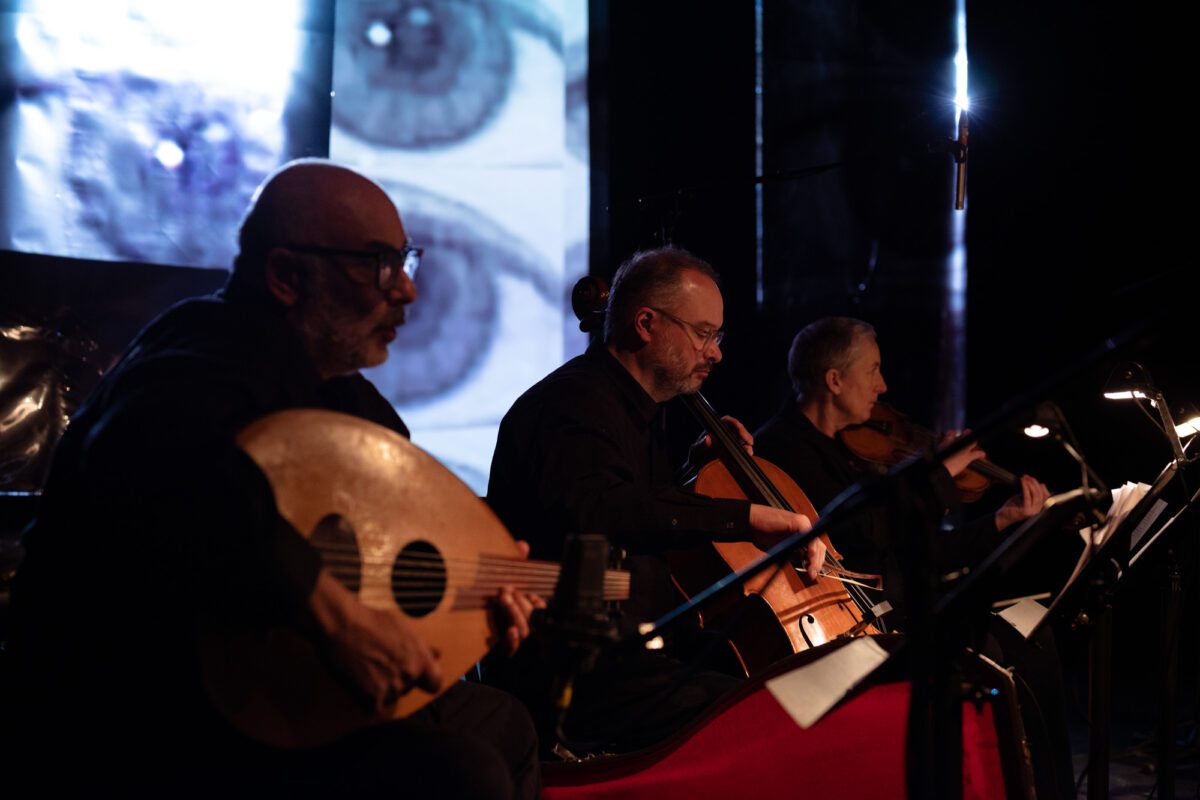
Cr.: Philippe Latour
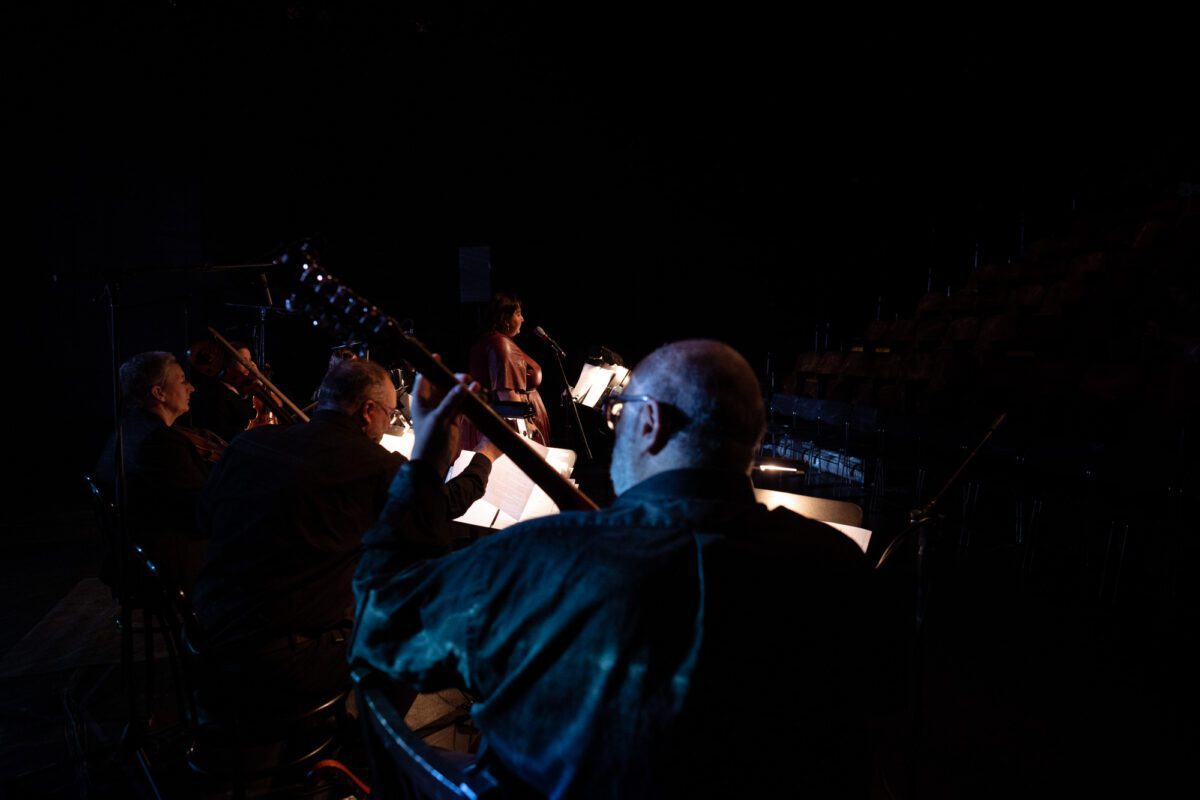
Cr.: Philippe Latour
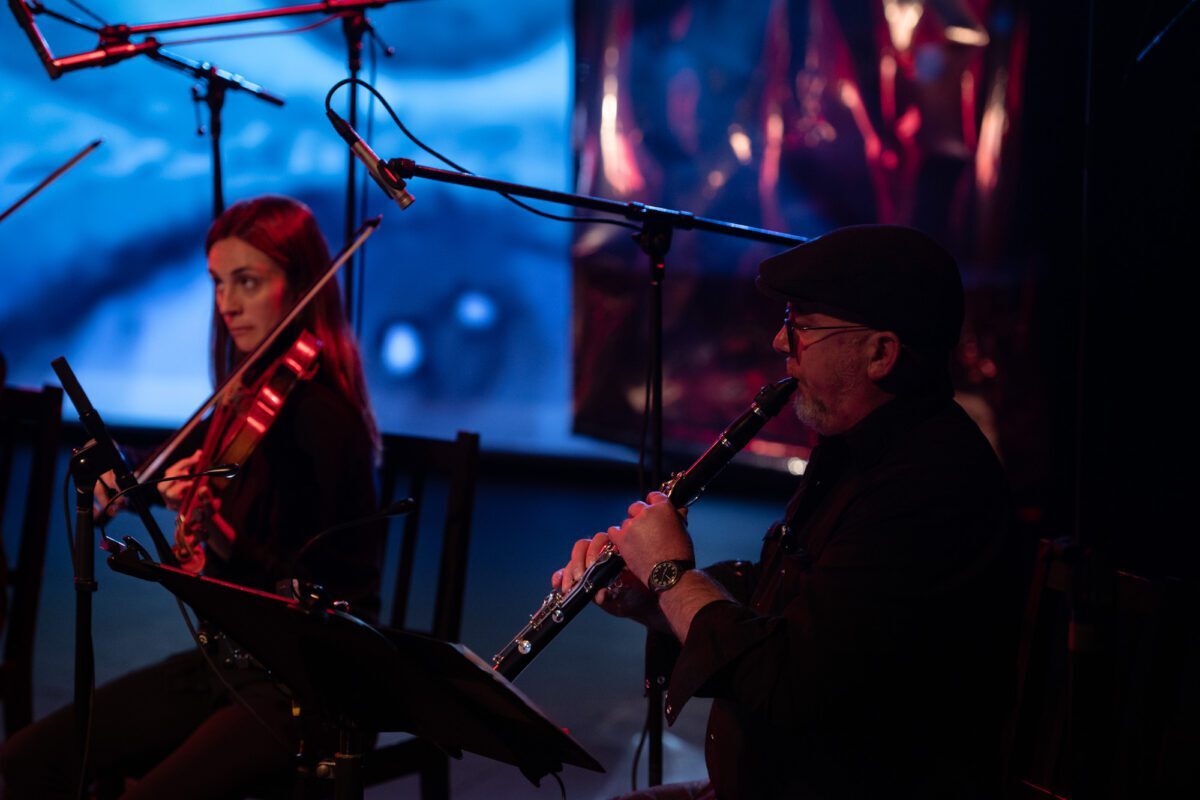
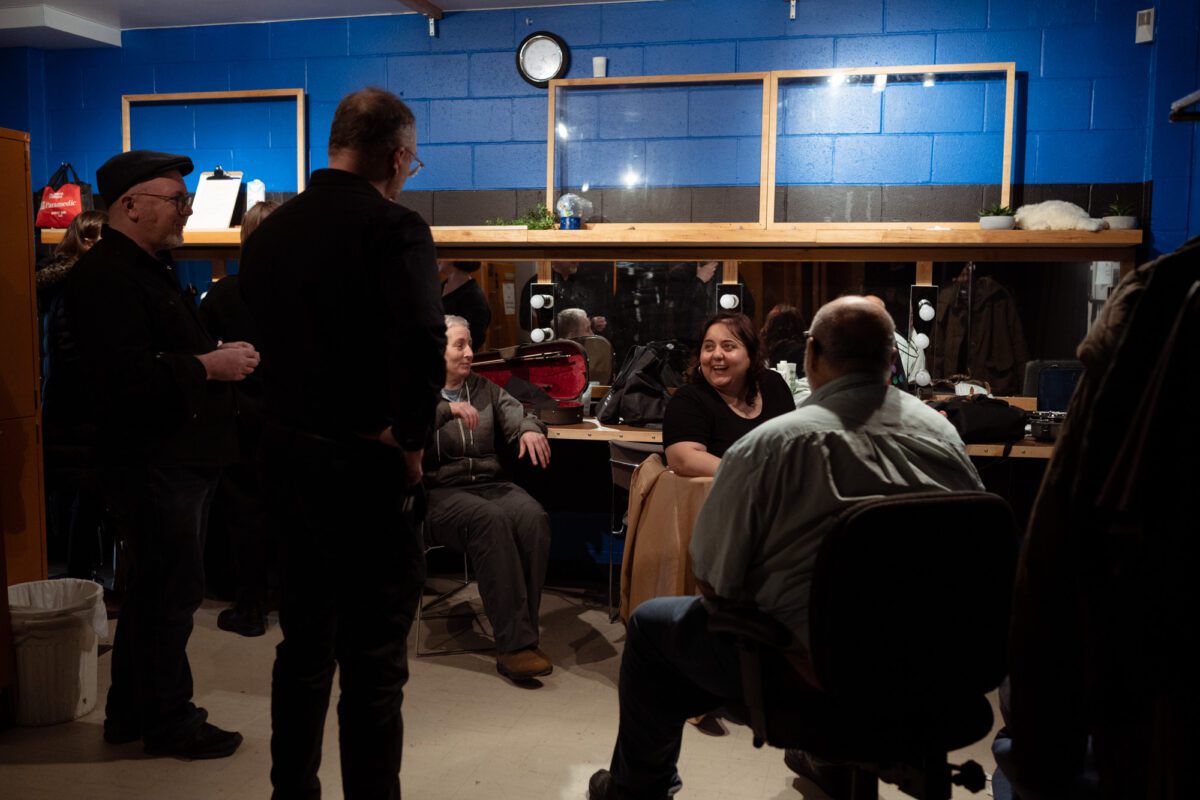
Cr.: Philippe Latour
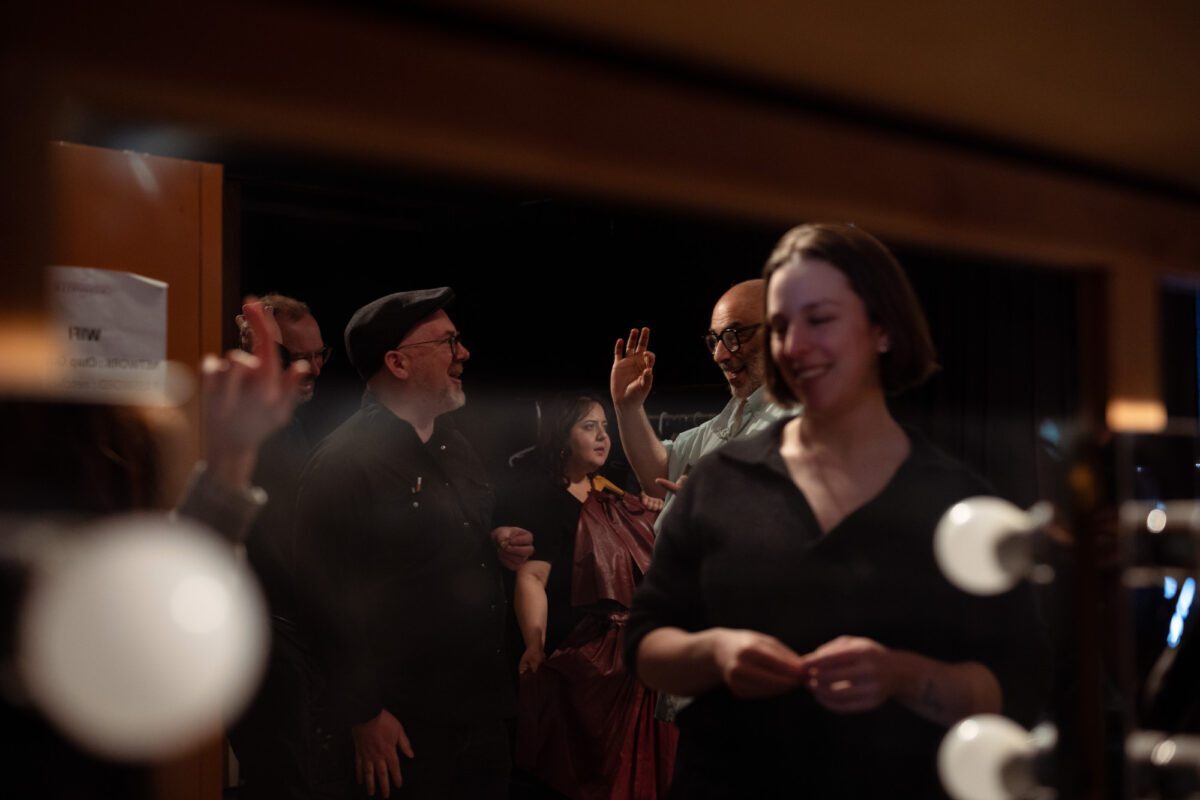
Through the character of the young girl in the film who dreams of the city and its modernity, Latif recounts her own questions about identity. The images are as much a pictorial backdrop as they are symbolic and psychological projections of a revealed intimacy. And above all, she also questions our relationship with patriotism and nationalism. Afghanistan (through the eyes of the young girl) and its shattered dreams of modernity hold up a mirror to our own shattered dreams. In relation to that country, we have “succeeded”, but to do what exactly? It’s not a question of denying anything about our way of life, but of reevaluating and reframing it in a context where we absolutely must question the values that will drive this still young 21st century, in order to get through it and come out better than when we started. Maybe.
I’d like to point out one detail of the staging (for future performances): two vertical veilsof silvery hues bordered the screen. However, where I was sitting, one of these strips obscured part of my view of the film because of the lighting reflections that accumulated on it. We’ll have to think of something else…
That said, at barely forty minutes long, the show has no time to bore and we come away satisfied with a discovery (I’d never, ever heard of this film) as well as having been moved to think soberly about some burning issues.
The original film Like Eagles (”Mānand-e ‘Oqāb” in the original language) is available for free online :
